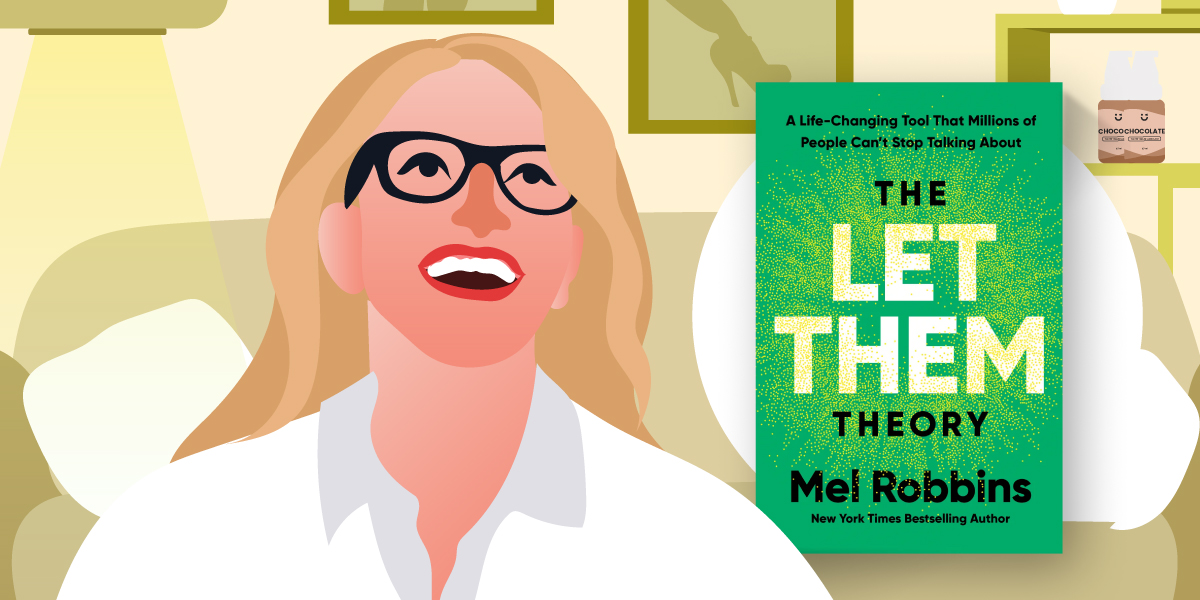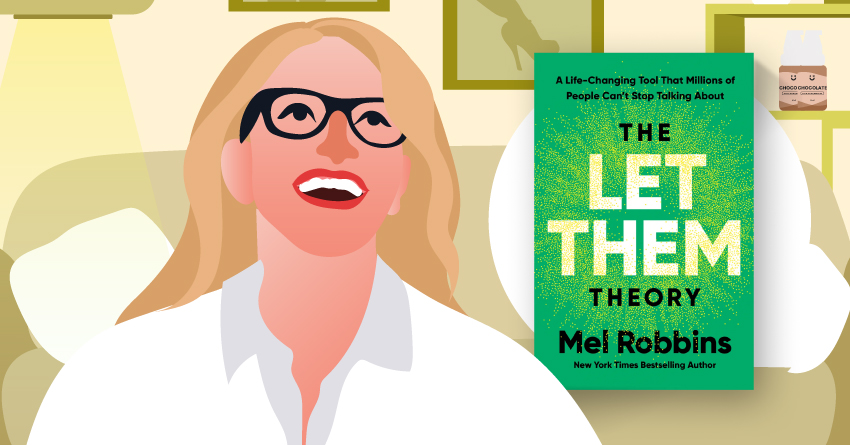
Are you frustrated with your friend’s questionable dating choices? Saw your grandpa post support for a highly corrupt official? Partner complaining about their job all day but refusing to quit? It’s totally normal to feel frustrated.
Sometimes, you just want to steer them in the right direction and prove that their life would be much better if they’d only listen. However, trying to control someone else or force a situation often leads to even more frustration, straining your relationship in the long run.
So, when you’re frustrated with someone’s choices, follow the Let Them theory instead.
Why We Try to Control People or Situations
Ever felt the urge to control a situation or push a loved one toward a decision, even when they want something else? Don’t worry, it’s completely normal. Here are some reasons why this happens:
1It serves as a distraction.

Mel Robbins, the bestselling author who popularized the Let Them Theory, explained that one of the main reasons people try to control things is that it distracts from their deeper feelings or truths they don’t want to face.
For example, someone might fixate on how their coworkers do things differently, getting frustrated that they rely on technology and seemingly have it easier. But the real issue isn’t the coworkers…
Deep down, this person might feel stuck in their career, frustrated by a lack of progress, and resentful that others are adapting while they feel left behind. Instead of addressing their own dissatisfaction, they hyperfocus on controlling what others do, even when the work is getting done just fine.
2We view the other person’s situation from our own perspective.

Sometimes, we try to control others because we see their situation through our own lens and assume we know what’s best for them.
For example, a woman might disapprove of her best friend dating a “broke” guy as she sees that person as unambitious. Maybe she’s had bad experiences with similar partners and doesn’t want her friend to go through the same thing, so she pushes her to date someone else.
But she’s viewing the situation through her own past experiences. What if her friend’s boyfriend works toward a stable career or temporarily supports his family? She may not see what her friend sees.
3Focusing on others and external factors feels easier.

Judging and controlling others is easier than focusing on our growth. For example, someone might criticize their sibling for counting calories to manage portion sizes and eat more nutritiously. They might insist that keto is a better option or that hitting the gym is necessary to avoid saggy skin.
But if you take a step back, you might notice that the person giving advice is actually the one who could benefit from it since they’re eating fast food every day and barely moving. Instead of working on themselves, they channel their energy into controlling someone else.
What is the Let Them Theory?

The Let Them Theory was popularized by Mel Robbins, a bestselling personal development coach, former lawyer, and podcast host. She’s also known for the 5-Second Rule, a simple yet powerful approach to achieving success that went viral through her TED Talk.
This theory is pretty simple: stop stressing over things beyond your control and focus on what you can change.
Your sister doesn’t want to join weekend family dinners? Let them.
Your cousins insist on joining a multilevel marketing scheme despite the red flags? Let them.
Your friend stays in a relationship with someone who mocks their interests? Let them.
Your partner refuses to wake up early and jog with you? Let them.
Instead of exhausting yourself trying to change people, redirect that energy toward your growth and peace.
Once you’ve embraced this mindset, you’ll start to…
- Feel less stressed and focus your energy on your own success.
- Take the time to truly know someone and see if they’re actually worth connecting with, or you just like them for their potential.
- Allow your loved ones to grow independently instead of relying on you.
Situations Where the Let Them Theory Doesn’t Apply
Now, there are scenarios where this theory cannot be used, as it can bring more harm than good:
1When someone is crossing your boundaries.

If someone is bullying you, violating your consent, or spreading hurtful rumors, letting them be isn’t the answer. The Let Them Theory is about releasing control over things that don’t concern you—not tolerating mistreatment.
You should stand up for yourself and set clear boundaries in these situations. Communicate that their behavior is unacceptable, and if needed, take action. For example, report it to HR with evidence if it’s happening at work.
2When someone is doing dangerous activities.

You shouldn’t just stand by if your friend tries to drive drunk, your family member considers a shady job offer, or your child starts pouring milk on an extension cord. When safety is at risk, stepping in isn’t controlling; it’s protecting.
3When someone fails to treat you with respect and the dignity you deserve.

Stuck in a job for years without a single raise? In a relationship where your partner never makes an effort, even on special occasions? Surrounded by friends who dismiss your budget-friendly plans?
As we’ve said, the Let Them Theory isn’t about tolerating disrespect or settling for less. Don’t stay where you’re undervalued.
Takeaway
Letting go can be the best move. Instead of fixating on others’ actions or uncontrollable situations, acknowledge your frustration, let it pass, and focus on what you can change. You’ll soon feel that you’re getting into a better headspace.


